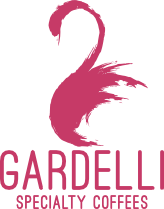В этом месяце мы отправимся в Кению через Италию с легендарный Рубенс Гарделли жарят для нас. Наполненный ароматом, это восхитительный способ по-настоящему насладиться кенийским кофе.
Кириани от Gardelli Specialty Coffee
I bet you didn’t think the first month of your subscription was going to be roasted in Italy! Rubens Gardelli, founder of Gardelli Coffee, is a one of a kind Italian coffee professional. He’s hyper-focused on quality and innovation and is producing my favourite kind of light-but-sweet roasts. This dedication shows. Here’s a short list of how hard he’s crushing the Italian and international coffee competition scene:
- 1ул место 2016 WCE Чемпионат Италии по обжарке кофе
- 1ул место 2015 WCE Italy Brewers Cup видео конкурса
- 1ул место 2015 WCE Чемпионат Италии по обжарке кофе
- 2nd место 2014 WCE World Brewers Cup видео конкурса
- 1ул место 2014 WCE Italy Brewers Cup видео конкурса
- 1ул место 2014 WCE Чемпионат Италии по обжарке кофе интервью
His 2015 World Brewers Cup routine stood out for me as one of the most interesting competition concepts ever. Essentially, he only used coffee from one tree, and went to incredible lengths to maintain the viability of the seeds until roasting. I don’t say this often about coffee competition routines: it’s actually worth a watch. The Gardelli roastery is in Forlì, halfway between Rimini and Bologna on the upper East coast of Italy. They always have delicious coffees on hand, and ship internationally. If you’re keen to try more coffees from them, there’s another sample that Rubens sent me -the Ch’ire Ameli from Ethiopia– that is absolutely outstanding!
If you’ve had Kenyans before, you’ve probably heard of Nyeri in the county Mukurwe-ini. Kiriani is just 28km south of Nyeri near the Mukurwe-ini border in another county called Muranga. Pretty much right next door.
Г-жа Ракели Нджери Ньороге и пять других членов семьи основали поместье Кириани площадью 39,5 акров в 1978 году. Кенийский кофе часто обрабатывается на моечных станциях, принадлежащих фермерским кооперативам, но этот кофе поступает из одного поместья, которое выращивает и перемалывает кофе самостоятельно. Семья Ньороге выращивает чай и бананы вместе с сортами кофе SL28 и SL34 на высоте примерно 1680-1850 метров над уровнем моря.
The coffee is handpicked and pulped. This initially separates the dense beans from the immature ‘mbuni’s (floaters) using water floatation which means the denser beans will sink and be sent through channels to the ферментации бак. Этот первый этап ферментации прослужит около 24 часов, после чего фасоль промывается и отправляется на вторичный ферментации бак еще на 12-24 часа. Однажды ферментации process is completed, the beans enter the washing channels where floaters are separated further and the dense beans are cleaned of mucilage. The washed beans will then enter soaking tanks where they can sit under clean water for up to another 24 hours. This soaking process is intended to develop amino acids and proteins in the cellular structure of each bean which apparently results in higher levels of кислотность and complex fruit flavours in the cup – it is thought that this process of soaking contributes to the flavour profiles that Kenyan coffees are so famed for. The beans are then transferred to the initial drying tables where they are laid in a thin layer to allow around 50% of the moisture to be quickly removed.
Этот первый этап сушки может длиться около 6 часов, после чего бобы собираются и укладываются более толстыми слоями на оставшиеся 5–10 дней периода сушки. Сухой пергаментный кофе затем доставляется на частную мельницу и помещается в «винные погребки» для отдыха — это приподнятые ячейки из проволочной сетки, которая позволяет кофе полностью дышать.
Кофе традиционно продается через аукционную систему страны, хотя недавние поправки к закону о кофе в Кении привели к введению прямой торговли, благодаря которой фермеры могут обходить аукцион и продавать напрямую специализированным обжарщикам по всему миру. После того, как кофе промыт и высушен, его отправляют на мельницу Кофинаф для сухого помола и сортировки. Затем его готовят к отправке.
1$ from every envelope is donated to the roaster’s coffee related charity of choice. This month, Rubens chose Основания для здоровья. С 1996 года организация Grounds for Health работает в Латинской Америке и Африке над устранением одного из наиболее значительных различий в состоянии здоровья женщин во всем мире. Рак шейки матки — это почти 100% излечимое заболевание, однако ожидается, что в ближайшие 15 лет от него погибнет шесть миллионов женщин, 90% из которых будут жить в развивающихся странах. Grounds for Health специализируется на работе с сообществами, которые представляют собой основу глобальных цепочек поставок, таких как кофе, чай, срезанные цветы и какао.
This part of the last mail-out was really valuable for a lot of people. I’ve set up a few posts in the Barista Hustle Community Forum where we can all geek out together. Please free to jump in! Запекание – Rubens has a highly custom roaster so this should be interesting. Кириани – Questions about Kenyan coffee, the variety, or anything pre-roasting. Пивоварение – Troubleshooting, recipes, water, advice, and sharing tasting notes. Мета – Anything else about the subscription.
